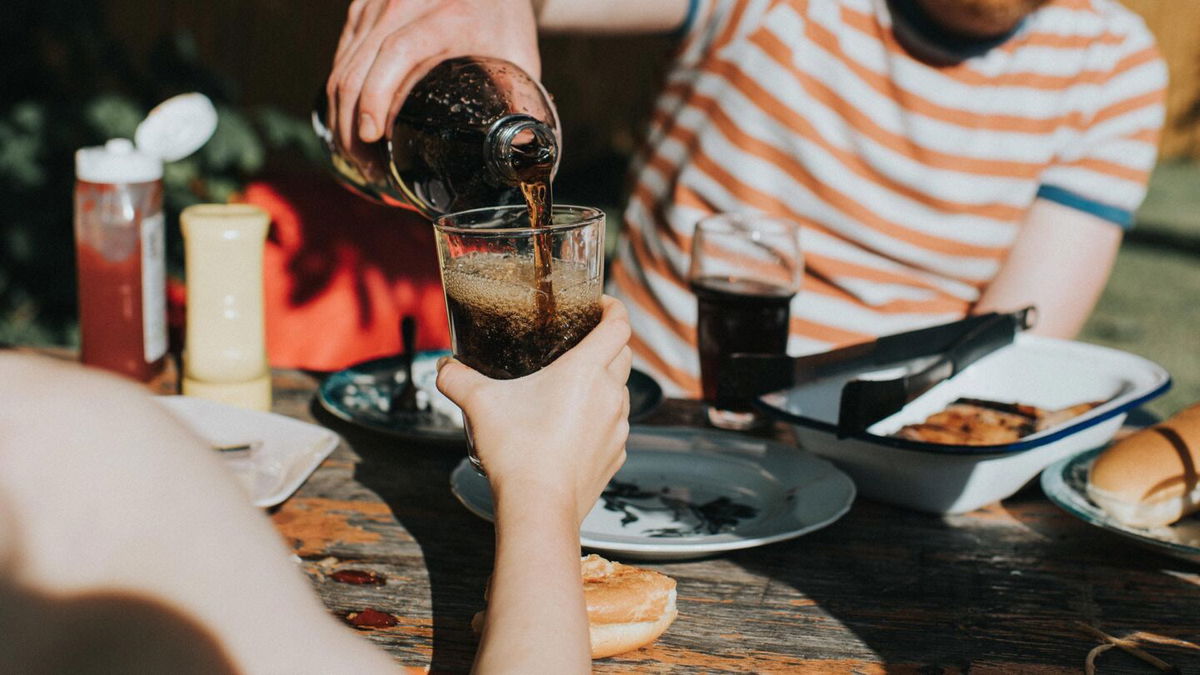Drinking sugary drinks may increase your risk of death. Here are alternative options

Sugar from liquids enters the bloodstream more quickly
(CNN) — Sugary drinks may leave a sour taste given their possible impact on mortality, according to a new study. “This is a public health crisis, requiring urgent action,” said the study’s senior author, Dr. Dariush Mozaffarian, a cardiologist and director of the Food is Medicine Institute at Tufts University.
The study, published Monday in the journal Nature Medicine, analyzed global data on sugar-sweetened beverages consumed around the world, observational and randomized studies, and both diabetes and cardiovascular disease prevalence.
With the evidence, researchers created a comparative risk model and estimated that sugary drinks “cause more than 330,000 annual deaths from diabetes and cardiovascular disease,” Mozaffarian said.
The problem is particularly serious in Latin America and the Caribbean, which had the largest number of cardiovascular disease cases related to beverages, and sub-Saharan Africa, which also had the most cases of type 2 diabetes from sugary drinks, he added, based on the researchers’ model.
The study also examined the demographics of those most affected by sweetened drinks –– namely, younger male adults with higher education in urban areas, said Toby Smithson, a registered dietitian nutritionist, fellow of the Academy of Nutrition and Dietetics and senior manager of nutrition and wellness at the American Diabetes Association. She was not involved in the study.
“It’s time to pay attention to, and take priority actions to deal with, this tragic preventable suffering,” Mozaffarian said in an email.
Why liquid sugar is so fast-acting
Because the study did not test a behavior or intervention against a control group, the new study’s researchers can’t say that the sugar sweetened beverages are causing diabetes and cardiovascular disease –– they can only estimate the impact.
The researchers collected valuable data across 184 countries, but the study did not factor in all income levels and the increased risk of diabetes and cardiovascular disease among high-risk ethnic groups, Smithson said.
But the finding of sugary beverages as harmful makes sense, as many studies have shown a link between such drinks and poor health impacts, Mozaffarian said.
Sugar sweetened beverages have “empty calories” — or calories without any nutritional benefits, Smithson said. They are also a source of fast-acting carbohydrates, which enter the bloodstream and raise blood sugar quickly, she added.
These empty sugars in liquid form are even more harmful than those in desserts or sweet foods, Suzanne Janzi, a doctoral student in nutritional epidemiology at Lund University in Sweden, said in an earlier CNN article. She was not part of the most recent research.
“Liquid sugars are absorbed more rapidly in the digestive system since they do not require the same breakdown processes as solid foods,” Janzi said in an email. “Solid sugars are often part of foods that contain other nutrients like fiber, proteins, and fats.”
Those nutrients slow digestion, meaning there is a more gradual release of sugar into the bloodstream, she said.
While fats, fiber and proteins in solid food leave you feeling fuller longer, liquid sugars often don’t fill you up, which can lead to appetite dysregulation and the consumption of too many calories, she added.
“Different sources of added sugars also vary in their consumption patterns, which could further explain why they associate differently with cardiovascular disease risk,” Janzi said.
Are alternative sweeteners the answer?
What about drinks that are sweetened with something other than sugar? They might be better, but they aren’t the answer, Mozaffarian said.
“Growing research shows that both natural and artificial low-calorie sweeteners are not innocuous and may cause health harms, so these should be considered a short-term, less harmful alternative, not a long-term solution,” he said.
For example, artificial sweeteners might be a good substitute in moderation for people with diabetes, who may be accustomed to sugary drinks, Smithson said.
“By providing a diabetes-friendly way to prepare foods people are used to eating, we can meet people where they are in offering support to effectively manage their diabetes,” she said.
But instead of relying on artificial sweeteners, Mozaffarian advises switching to unsweetened drinks all together, such as seltzer, unsweetened tea or coffee, or just plain water.
Hydration is important for managing blood pressure, blood sugar, internal temperature and digestion, Smithson said.
“The best hydrating beverage is water,” she said in an email. “If a person doesn’t like plain water, they can jazz up their beverage by drinking infused water with slices of lemon, lime, or fresh herbs, or using sparkling waters that contain no added sugar.”
The-CNN-Wire
™ & © 2025 Cable News Network, Inc., a Warner Bros. Discovery Company. All rights reserved.